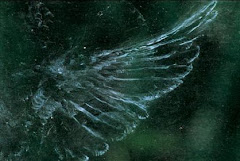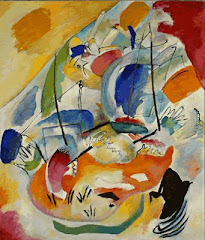5.1 It is said that dentists have the worst teeth. I am not sure that is true. However, I do think that hairdressers tend to have terrible haircuts. And, from my experience of graduate school so far, it would seem that psychology graduates are very stressed and struggle to achieve balance in their own lives. One of my professors said that grad school is too stressful to be able to maintain a romantic relationship. I mean, please; it's not like going to war. But then, I can’t really comment, since I am on the moderated program with less modules per semester, and very grateful for it.
I have decided to do some drawings of local wildlife when I am not studying. It is a good way to ensure balance. You should not rush a drawing.

5.2 In my Intercultural Awareness Development’ module I had to list the five cultural groups/ populations with whom I feel least comfortable. The groups could be very loosely defined - race, ethnicity, nationality, social demographic status, sexual orientation etc. At first I thought that I don’t feel uncomfortable with any group; I only feel uncomfortable with individuals who feel uncomfortable with or resentful towards me because I am a white male born into privilege. But then I thought of people who are severely disfigured. People with terrible deformities. That is probably the only group with whom I am not at all comfortable. I feel very sorry for them, I am revolted by their mutations and at the same time ghoulishly fascinated. In any case, I can certainly not engage in any normal way. At least, I don’t think I can, though I am not sure I have ever tried.
The following week the assignment was returned to us, along with the next assignment. In my case it was to find someone with a disability and interview them for 8 to 10 hours over the next two months in order to come to understand them, their lives, their experiences and their relationship to disability.
There was no guidance in terms of how or where to find our interviewee, and since I barely know anyone in this city and certainly do not have access to a network of contacts, I was a little stuck. However, that very afternoon I went swimming in the bay at the Dolphin Club. I was minding my own business and happily splashing from buoy to buoy when I heard loud, repeated shouts of ‘blue cheese!’. I looked up to see a huge man with a white beard who looked like Neptune; he was treading water a few metres away from me. There was a lady swimming a few metres beyond him. I looked at him as inquisitively as possible through my swimming goggles; was this the drowning cry of a maniac? However, he continued to shout at the lady and ignored me, so I swam on and thought to myself that it takes all types.
I was sitting in the sauna after my swim when the enormous Neptune man came in. He had moved to San Francisco from Texas to play ‘go’ several decades ago. He had a very idiosyncratic way of speaking, punctuating his conversation with what appeared to be a slight variant of the Indian acha-cha-cha-cha-cha. I asked him why he had been shouting ‘blue cheese’ while swimming. He explained that the lady he was swimming with was blind and this was one of their code words.
When I next saw Neptune I asked him whether his blind friend might consent to being interviewed by me. This was of course slightly delicate since I wanted, as far as possible, to avoid having to confess my own discomfort with disability. I wanted to present myself as having a desire to learn about disability, rather than admitting that I had been given an assignment based on my own personal shortcomings. So, I wrote a letter to the blind lady which I left in Neptune’s locker at the Dolphin Club and I am very happy to say that she has agreed to be interviewed by me.

5.3 Last week I met the blind lady for the first time. I am going to call her Ariel; she has tattoos of mermaids and dolphins all over her arms and shoulders. She suggested that we meet at the Bombay Bazaar, an Indian ice cream parlour in the Mission district. Ariel is 47 years old. She arrived in a flowing dress with a thick garland of leaves and flowers on her head. Her arms and shoulders were bare; I observed on them the tattoos which she has never seen. Ariel grew up in South Africa; she had her eyes removed when she was eight months old owing to retinal cancer. Since then she has used glass or plastic eyes which she takes out when she goes to sleep. I did not realize that her eyes were plastic until halfway through our meeting. Ariel arrived accompanied by her boyfriend who then left us.
My remit for the initial interview was to establish Ariel’s biography. I stuck pretty much to the facts of her life. However, I think this may be a very interesting and illuminating assignment, not least because of Ariel’s openness and warmth. I walked the two blocks home with her from the Bombay Bazaar. She very lightly held my elbow, or rather, her hand hovered with my elbow in the gap between her thumb and index finger. Then she hugged me on her doorstep.
5.4 A few days after the interview I was shopping in my local supermarket when I saw a middle aged lady with a truly horrific facial disfigurement. She had an enormous livid tumour covering half her face, distorting her mouth so it hung half open and squeezing shut one eye; she reminded me of Joseph Merrick. The thought that makes me wither within is to imagine that happening to my own child. That truly makes it real and breaks down the distancing defences. I realised that is the lady I ought to be interviewing. I considered approaching her and asking her, but how on earth to do that? How to ask anything, especially when you are already struggling to control your emotions? Well, needless to say, I chickened out.










